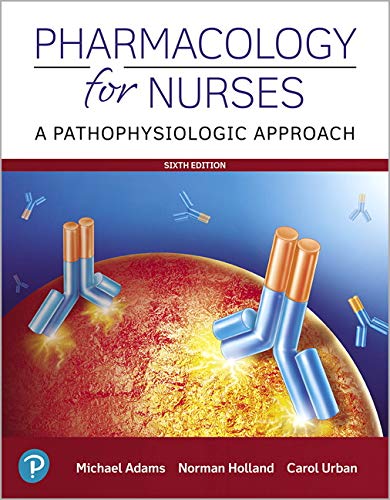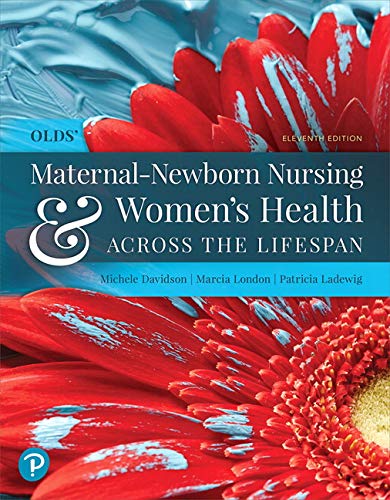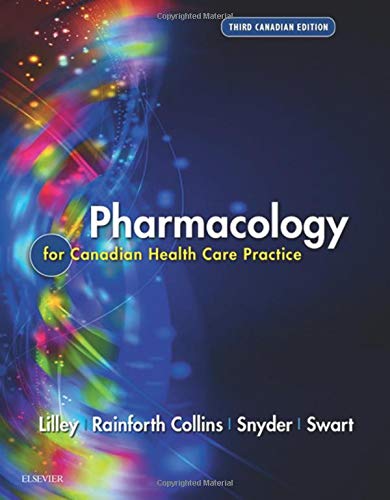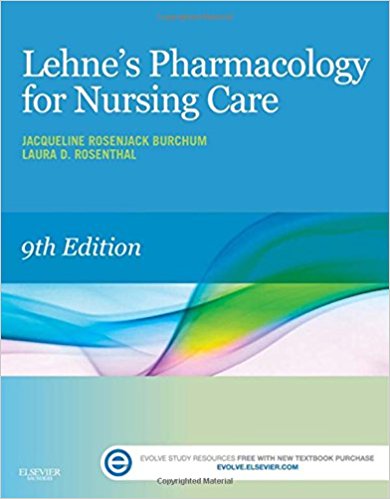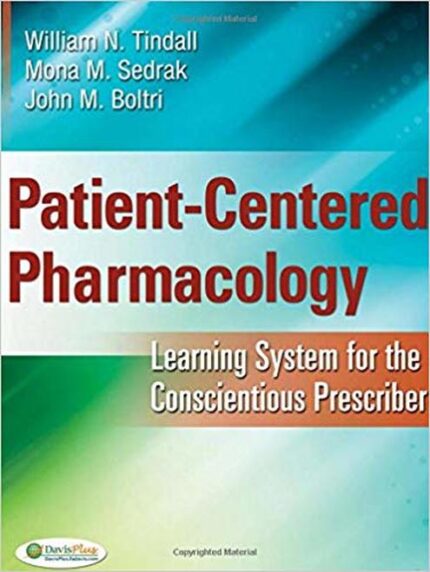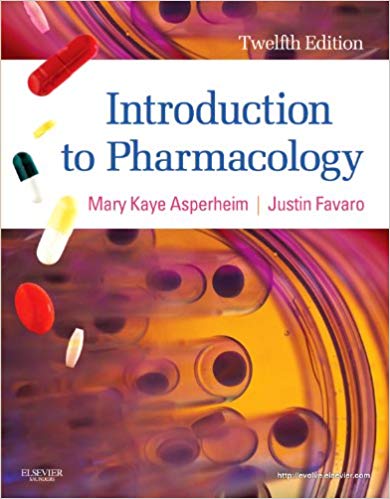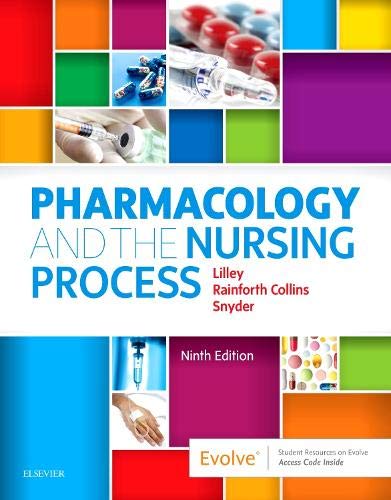Test Bank For Pharmacology for Nurses: A Pathophysiologic Approach 6th Edition
Test Bank Pharmacology for Nurses A Pathophysiologic Approach, 6th Edition Michael P. Adams
ISBN-10: 0135218330, ISBN-13: 9780135218334
Pharmacology for Nurses, 6e (Adams)
Chapter 1 Introduction to Pharmacology
- A nurse is reviewing key events in the history of pharmacology with a student nurse. Which student comment indicates an understanding?
- “Early researchers used themselves as test subjects.”
- “A primary goal of pharmacology is to prevent disease.”
- “Penicillin is one of the initial drugs isolated from a natural source.”
- “Pharmacologists began synthesizing drugs in the laboratory in the nineteenth century.”
Answer: 1
Explanation:
- Some early researchers, like Friedrich Serturner, used themselves as test subjects.
- An early goal of pharmacology was to relieve human suffering.
- Initial drugs isolated from complex mixtures included morphine, colchicine, curare, and cocaine, but not penicillin.
- By the twentieth century, pharmacologists could synthesize drugs in the laboratory.
Page Ref: 3
Cognitive Level: Applying
Client Need/Sub: Physiological Integrity: Pharmacological and Parenteral Therapies
Standards: QSEN Competencies: I.A.1 Integrate understanding of multiple dimensions of patient-centered care: patient/family/community preferences, values; coordination and integration of care; information, communication, and education; physical comfort and emotional support; involvement of family and friends; and transition and continuity. | AACN Essential Competencies: I.7 Integrate the knowledge and methods of a variety of disciplines to inform decision making. | NLN Competencies: Knowledge and Science: Integration of knowledge from nursing and other disciplines. | Nursing/Integrated Concepts: Nursing Process: Evaluation
Learning Outcome: 1-1 Identify key events in the history of pharmacology.
MNL Learning Outcome: 1.1 Examine the relationship between medicine and pharmacology.
- A student nurse asks a nursing instructor why anatomy and physiology as well as microbiology are required courses when the student only wants to learn about pharmacology. What is the best response by the instructor?
- “Because pharmacology is an outgrowth of those subjects.”
- “You must learn all, since all of those subjects are part of the curriculum.”
- “Knowledge of all those subjects will prepare you to administer medication.”
- “An understanding of those subjects is essential to understand pharmacology.”
Answer: 4
Explanation:
- Pharmacology is an outgrowth of anatomy, physiology, and microbiology, but this is not the most essential reason for the nurse to learn them.
- The nurse must learn anatomy, physiology, and microbiology to understand pharmacology, not because they are part of the curriculum.
- Knowledge of anatomy, physiology, and microbiology prepares the nurse to understand pharmacology, not to provide care such as administration of medications.
- It is essential for the nurse to have a broad knowledge base of many sciences in order to learn pharmacology.
Page Ref: 3
Cognitive Level: Applying
Client Need/Sub: Physiological Integrity: Pharmacological and Parenteral Therapies
Standards: QSEN Competencies: I.A.1 Integrate understanding of multiple dimensions of patient-centered care: patient/family/community preferences, values; coordination and integration of care; information, communication, and education; physical comfort and emotional support; involvement of family and friends; and transition and continuity. | AACN Essential Competencies: I.7 Integrate the knowledge and methods of a variety of disciplines to inform decision making. | NLN Competencies: Knowledge and Science: Integration of knowledge from nursing and other disciplines. | Nursing/Integrated Concepts: Nursing Process: Implementation
Learning Outcome: 1-2 Explain the interdisciplinary nature of pharmacology, giving an example of how knowledge from different sciences impacts the nurse’s role in drug administration.
MNL Learning Outcome: 1.1 Examine the relationship between medicine and pharmacology.

